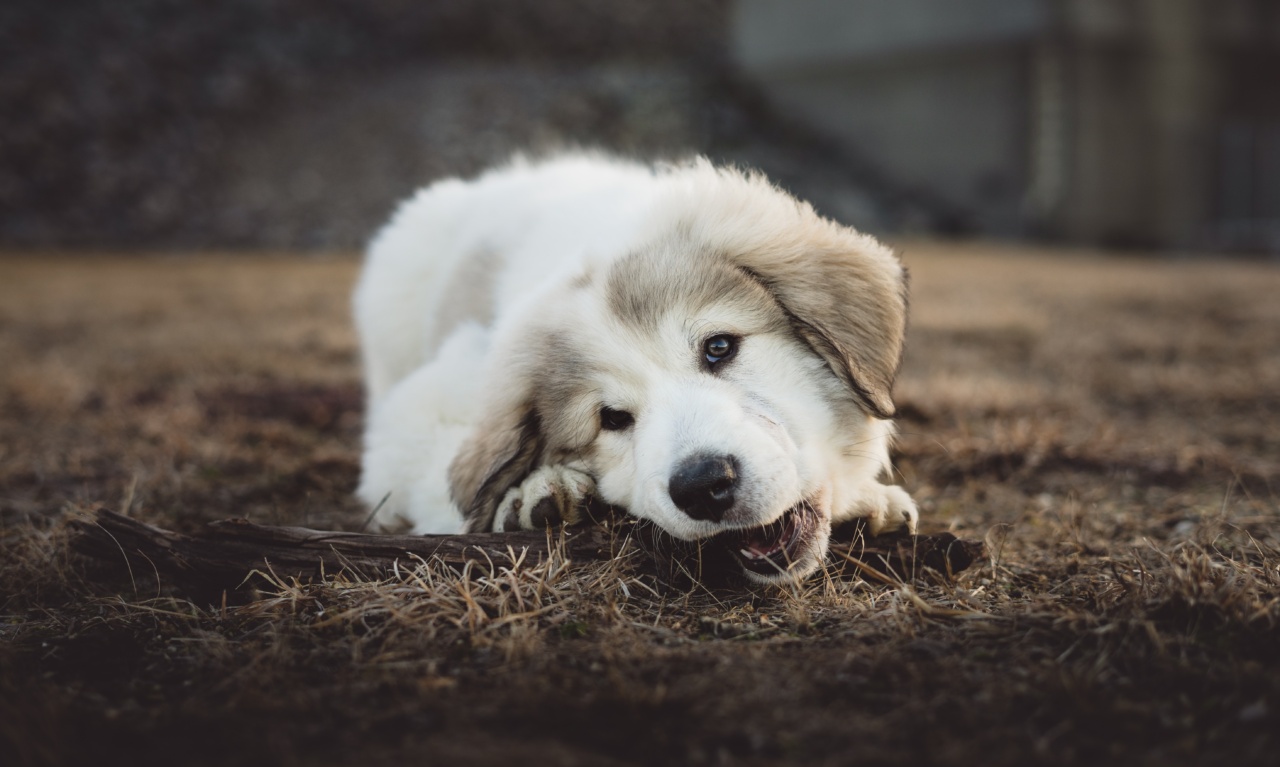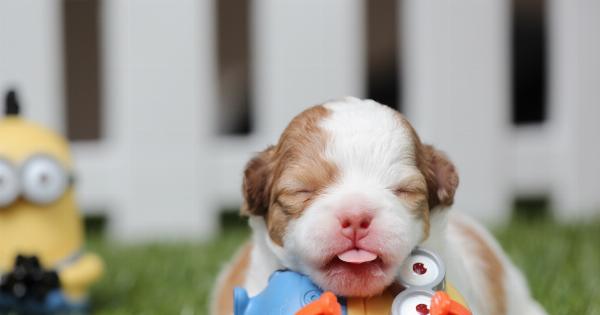Having a new puppy in the house is an exciting time, but it can also come with its fair share of challenges. One common issue that puppy owners face is their furry friend’s penchant for chewing on everything in sight.
From shoes and furniture to electrical cords and household items, their sharp little teeth can do quite a bit of damage. However, it’s important to remember that chewing is a natural behavior for puppies, and it serves several purposes, including relieving pain from teething and exploring their environment.
Instead of getting frustrated or angry, the key is to redirect your puppy’s chewing behavior to more appropriate outlets. In this article, we will discuss effective methods to redirect your puppy’s chewing tendencies and save your belongings from destruction.
1. Puppy-Proof Your Home
Before bringing your puppy home, it’s essential to create a safe environment by puppy-proofing your home. Remove any items that could be potentially hazardous or valuable, such as toxic plants, loose electrical cords, or fragile items.
By eliminating temptations, you are setting your puppy up for success and reducing the likelihood of destructive chewing.
2. Offer Appropriate Chew Toys
Puppies chew instinctively, especially when they are teething, so it’s crucial to provide them with appropriate chew toys to satisfy their urge. Look for toys specifically designed for puppies that are durable and made from safe materials.
Avoid toys that resemble household items, such as shoes or socks, as it may confuse your puppy and encourage chewing on the real thing. Introduce a variety of textures and flavors to keep your puppy engaged and interested in their toys.
3. Positive Reinforcement
Positive reinforcement is an effective training technique that can be used to redirect your puppy’s chewing behavior. Whenever you catch your puppy chewing on an appropriate toy, praise and reward them with a treat or verbal praise.
This helps to reinforce the idea that chewing on their toys is a desirable behavior. Consistency is key, so be sure to reward your puppy every time they choose to chew on the right objects.
4. Use Taste Deterrents
If your puppy is persistently chewing on specific items, you can use taste deterrents to discourage them. There are various bitter sprays available in pet stores that are safe for dogs but taste unpleasant, deterring them from chewing.
Spray a small amount of the taste deterrent on the item your puppy is attracted to, and they should quickly learn to associate it with an unpleasant experience.
5. Provide Mental Stimulation
Boredom often leads to destructive chewing behavior in puppies. To prevent this, provide your puppy with plenty of mental stimulation. Puzzle toys, treat-dispensing toys, and interactive games can keep your puppy occupied and mentally engaged.
Mental stimulation not only redirects their energy away from destructive chewing but also helps in training and overall development.
6. Supervise Your Puppy
Keeping a close eye on your puppy is vital to redirect their chewing behavior effectively. When you cannot directly supervise your puppy, confine them to a safe space such as a crate or playpen.
This prevents them from getting into trouble and chewing on inappropriate items. Gradually increase their access to your home as they develop self-control and better chewing habits.
7. Provide Regular Exercise
Puppies have a lot of energy and need regular exercise to stay physically and mentally healthy. Play fetch, take them for walks, or engage in other activities that burn off their excess energy.
When your puppy is tired and satisfied, they are less likely to engage in destructive chewing behaviors out of boredom or pent-up energy.
8. Timeouts
If your puppy continues to chew on things they shouldn’t despite your efforts, you can use timeouts as a corrective measure. When you catch them in the act, calmly and firmly say “no” and remove the object.
Then, gently lead them to their designated timeout area, such as their crate or a quiet room, and leave them alone for a short while. This teaches them that their behavior has consequences and helps them understand what is acceptable.
9. Seek Professional Help, if Necessary
If your puppy’s chewing behavior is persistent, destructive, or causing distress, it may be beneficial to seek professional help from a veterinarian or a professional dog trainer.
They can evaluate the underlying causes and provide tailored guidance and training techniques to redirect your puppy’s chewing habits effectively.
10. Be Patient and Consistent
Redirecting your puppy’s chewing behavior requires patience and consistency. It is essential to remember that puppies need time to learn and form habits.
Redirect their attention to appropriate chew toys every time you catch them chewing on something they shouldn’t. With time, persistence, and positive reinforcement, your puppy will develop healthy chewing habits and save your belongings from destruction.






























